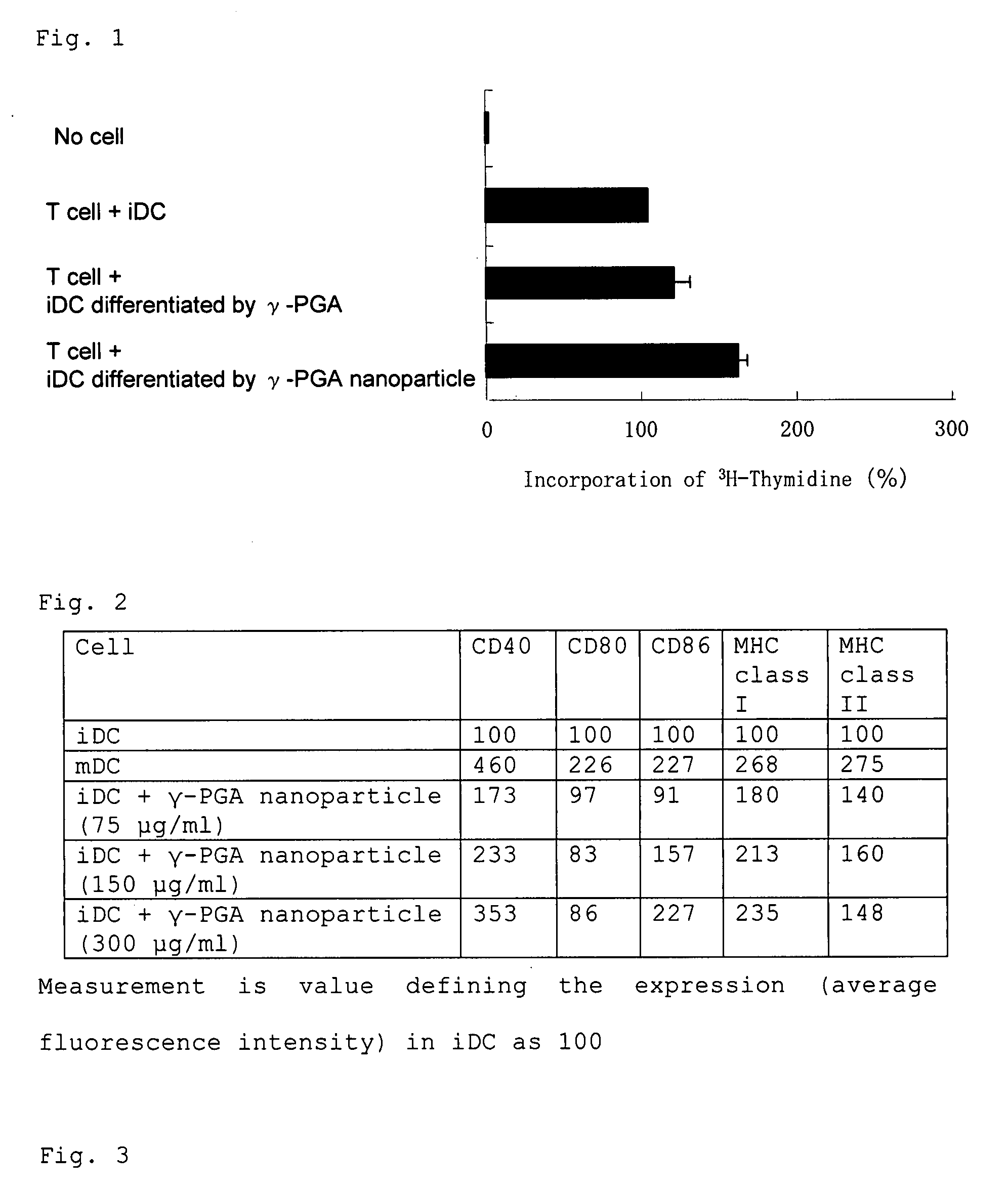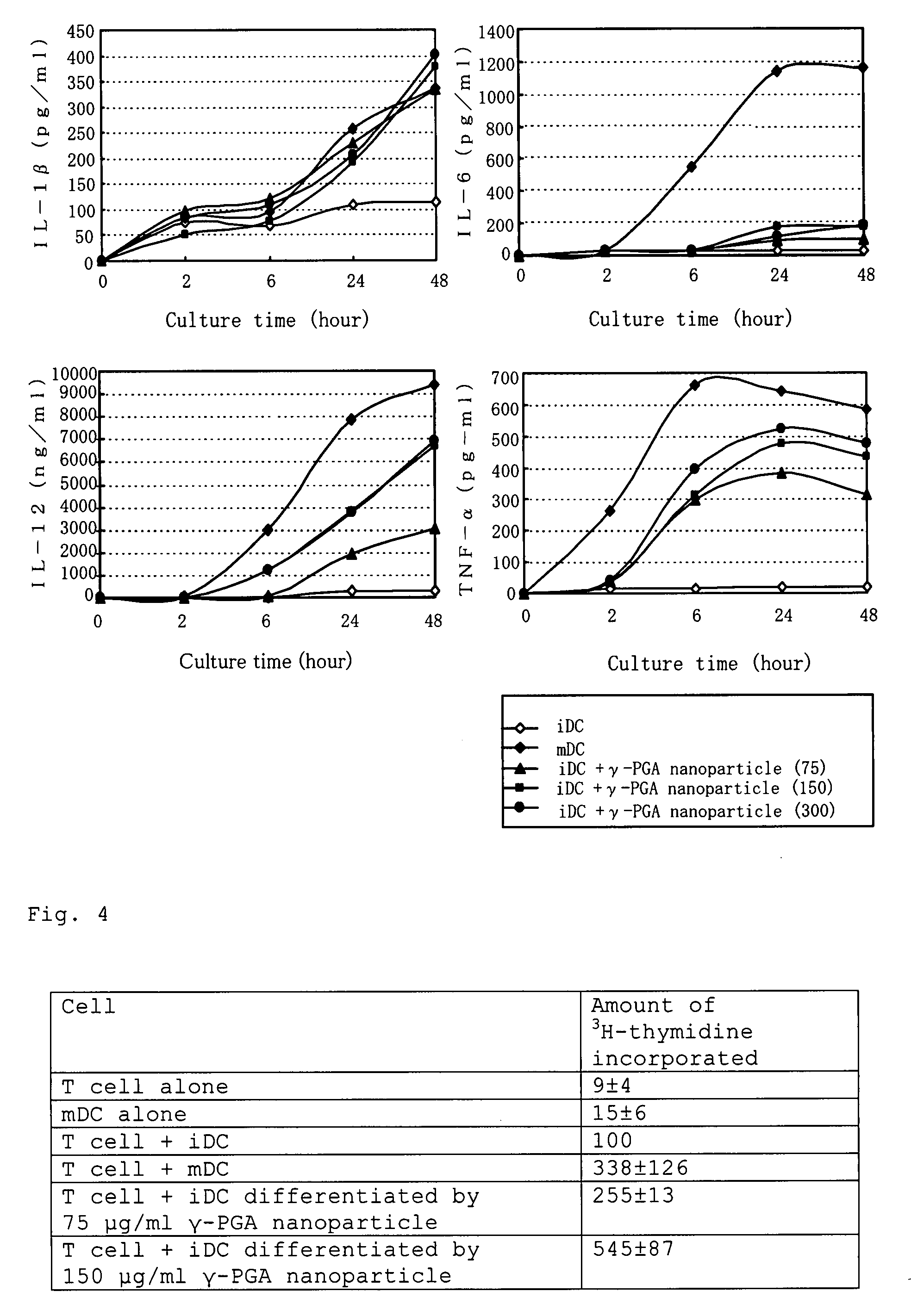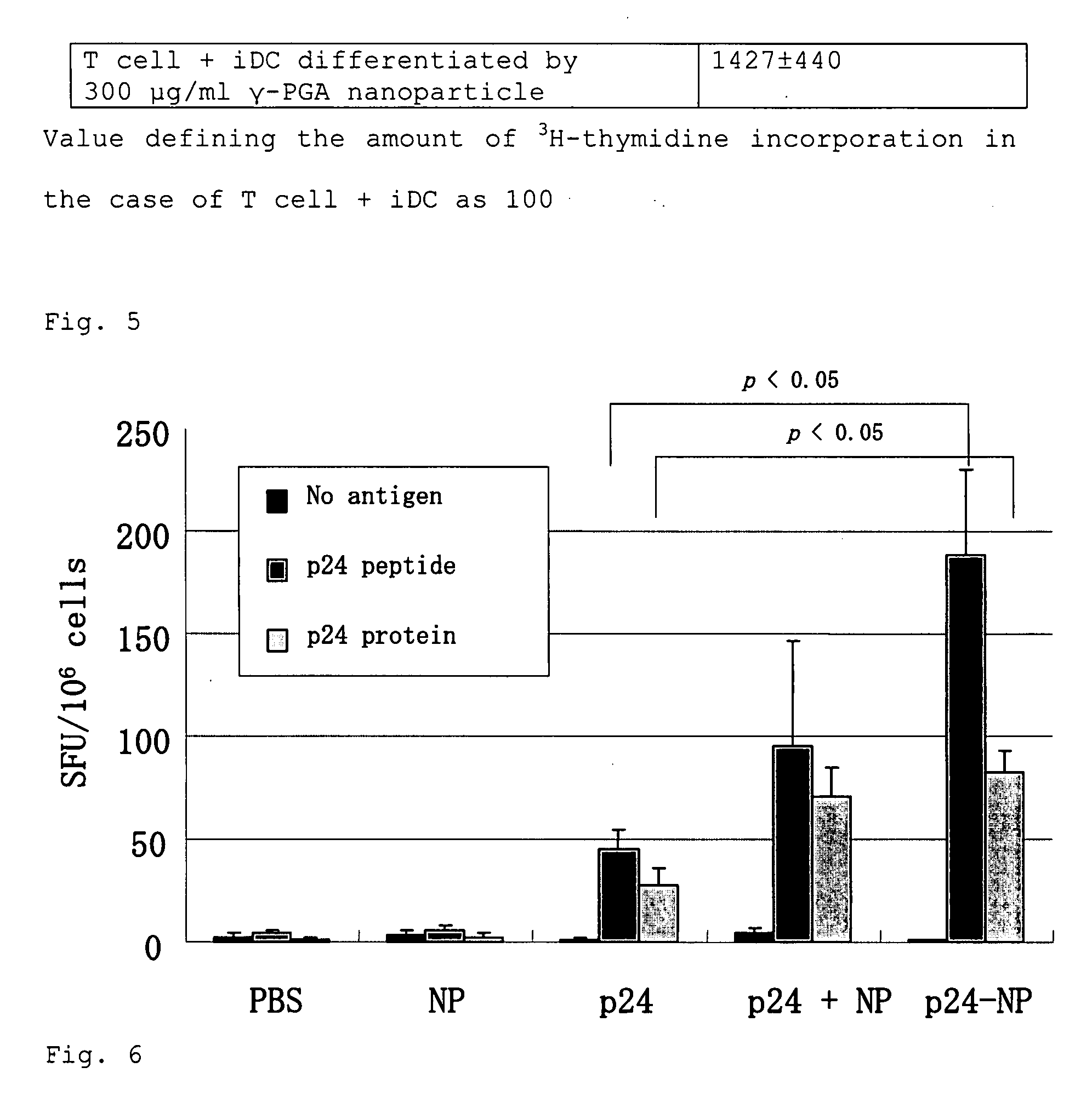Polyamino acid for use as adjuvant
a technology of polyamino acid and adjuvant, which is applied in the direction of antibody medical ingredients, carrier-bound antigen/hapten ingredients, drug compositions, etc., can solve the problems of low stability of the antigen molecule in the living body, insufficient efficiency of cell incorporation, and no report of a case in which a preexisting adjuvant is successfully used for an htlv-1 vaccine, etc., to achieve high safety
- Summary
- Abstract
- Description
- Claims
- Application Information
AI Technical Summary
Benefits of technology
Problems solved by technology
Method used
Image
Examples
example 1
Adjuvant Action of γ-PGA
[0085]Bone marrow cells were isolated from a mouse lower limb, and cultured in the presence of GM-CSF to obtain immature dendritic cells (iDCs). The iDCs were then cultured in the medium containing 100 μg / ml of γ-PGA or 100 μg / ml of γ-PGA nanoparticles (size; 177 nm) for 2 days. The resulting cells were cocultured with T-lymphocytes from an allogeneic mouse for 3 days. After the culture, the T-lymphocytes were incubated with 3H-thymidine for 16 hours. By measuring the incorporated amounts, it was examined whether or not the γ-PGA and γ-PGA nanoparticle induce differentiation of iDCs into mature dendritic cells (mDCs), and these mDCs activate T-lymphocytes. As a negative control, the iDCs which had been cultured in the medium without γ-PGA were used. The results are represented as values defining the amount of 3H-thymidine incorporation in the negative control as 100(%) (FIG. 1). It was found that: γ-PGA increases the amount of 3H-thymidine incorporation into ...
example 2
Promotion of Differentiation and Maturation of Dendritic Cell (DC) by γ-PGA Nanoparticle
[0086]A. Increase in Expression of Surface Molecule on DC by γ-PGA Nanoparticle
[0087]The iDCs obtained according to the method of Example 1 were cultured in the medium containing 75, 150 or 300 μg / ml of γ-PGA nanoparticles for 2 days. After the culture, the cell surface molecules, of which expression is increased as DCs differentiate and maturate (CD40, CD80, CD86, MHC class I and MHC class II), were measured using a flow cytometer. The iDCs which had been cultured in the medium without a γ-PGA nanoparticle were used as a negative control, and mDCs obtained by culturing iDCs in the medium containing LPS (lipopolysaccharide), which is known as a differentiation-inducing agent for DCs, were used as a positive control. It was found that the γ-PGA nanoparticle can increase the expression of CD40, CD86 and MHC class I in a concentration-dependent manner, that is, it can induce the differentiation of i...
example 3
T-Lymphocyte Activation Action of iDC Differentiation-Induced by γ-PGA Nanoparticle
[0090]According to the method of Example 1, the iDCs were differentiated by culturing in the medium containing γ-PGA nanoparticles (75, 150 or 300 μg / ml) for 2 days. The resulting cells were then cocultured with T-lymphocytes from an allogeneic mouse for 4 days. After the culture, T-lymphocytes were incubated with 3H-thymidine for 16 hours. By measuring the amounts of its incorporation, the T-lymphocyte activation action of the differentiated iDCs was examined. The iDCs which had been cultured in the medium without a γ-PGA nanoparticle were used as a negative control, and mDCs obtained by differentiating and maturing with LPS were used as a positive control. It was confirmed that the amounts of 3H-thymidine incorporation into T-lymphocytes are increased in a manner dependent on the concentration of γ-PGA nanoparticle used for differentiation of the iDCs, that is, T-lymphocyte activation action by γ-PG...
PUM
| Property | Measurement | Unit |
|---|---|---|
| Amphiphilic | aaaaa | aaaaa |
| Biodegradability | aaaaa | aaaaa |
Abstract
Description
Claims
Application Information
 Login to View More
Login to View More - R&D
- Intellectual Property
- Life Sciences
- Materials
- Tech Scout
- Unparalleled Data Quality
- Higher Quality Content
- 60% Fewer Hallucinations
Browse by: Latest US Patents, China's latest patents, Technical Efficacy Thesaurus, Application Domain, Technology Topic, Popular Technical Reports.
© 2025 PatSnap. All rights reserved.Legal|Privacy policy|Modern Slavery Act Transparency Statement|Sitemap|About US| Contact US: help@patsnap.com



